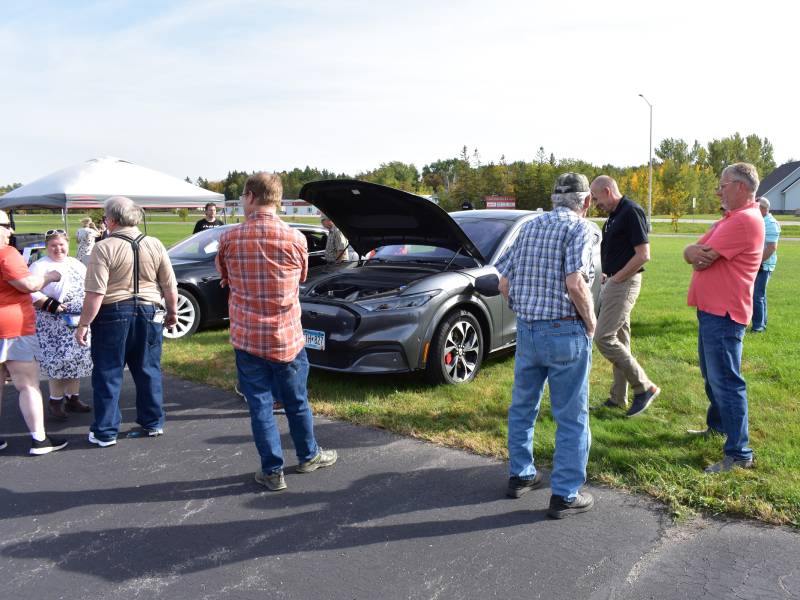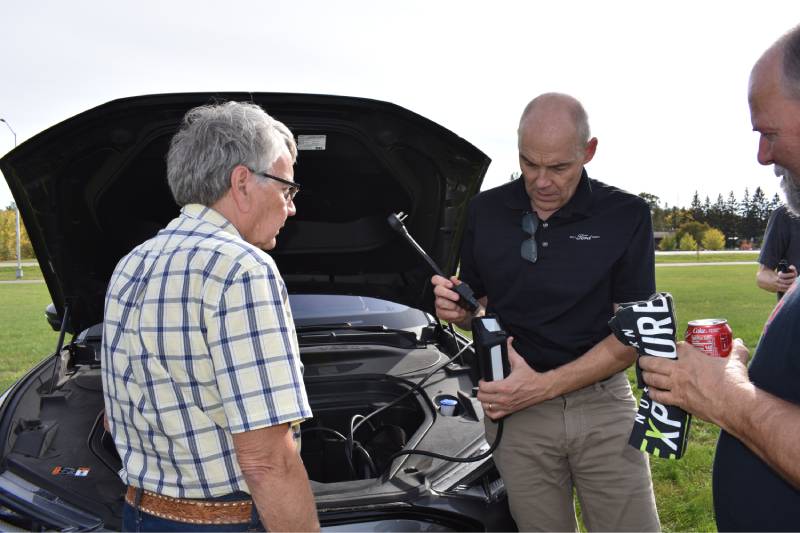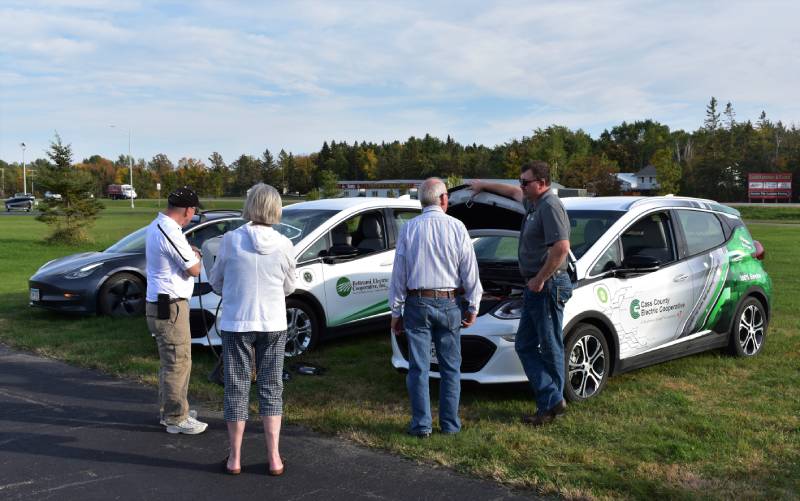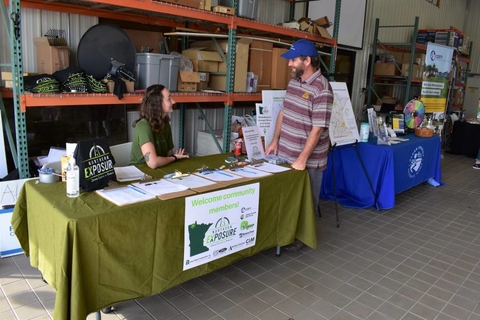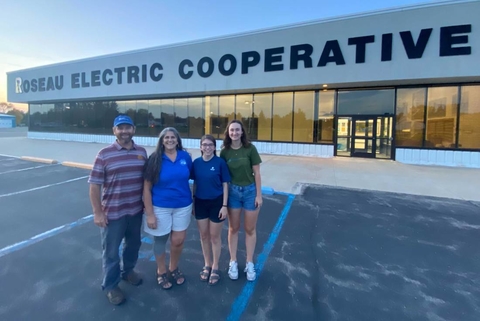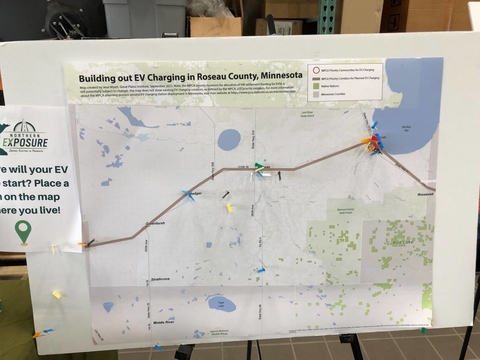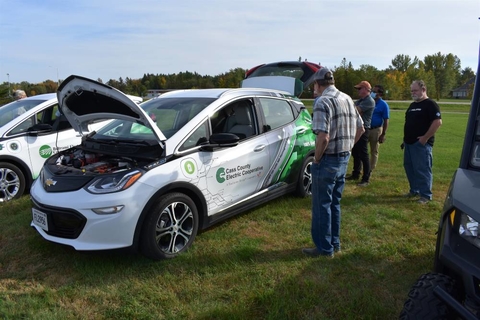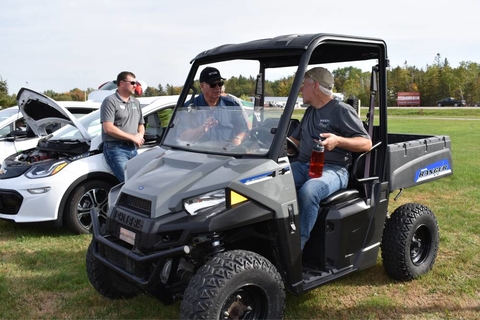Research supported by the Northwest RSDP, Headwaters Regional Development Commission and Minnesota Department of Transportation explores interest, considerations and possibilities related to developing an EV car-sharing program in Northern Minnesota.
Car-sharing programs can save individuals money on car payments and repairs, provide transportation access and protect the environment. Incorporating electric vehicles (EVs) into car sharing offers even more environmental benefits.
Car-sharing programs incorporating EVs are typically found in warmer climates, but the landscape is changing. Minnesota-based HOURCAR recently incorporated EVs into its program in the Twin Cities. But could an EV car-sharing program work in northern Minnesota, where temperatures run colder and trips more remote?
Research supported by the University of Minnesota Extension Northwest Regional Sustainable Development Partnership (Northwest RSDP) suggests it can.
EV car sharing
Much like bike-sharing programs that have cropped up across the country, car sharing offers community members who do not own a vehicle use of a communal car. Customers reserve a car and return the car following their trip. Business models and payment plans vary, but the basic idea is to provide transportation options to those who need it and reduce the number of cars on the road.
It’s not hard to see the potential need for such a program in northern Minnesota. “In the Northwest region of Minnesota, it seems there’s quite a few people who have one or zero reliable cars per household,” said Shannon Stassen, program associate with Northwest RSDP. “That’s pretty common in certain parts of the state, and having that option to have a car-share program that is available and affordable would really be of great assistance.”
In summer 2021, the Northwest RSDP partnered with the Headwaters Regional Development Commission (HRDC) to study the feasibility of an EV car-sharing program in the Bemidji area. Humphrey School of Public Affairs student Lily Johnson was hired to survey community members in Beltrami, Clearwater, Hubbard, Lake of the Woods and Mahnomen counties about their interest in such a program. Johnson also conducted informational interviews with community leaders and industry professionals.
“There’s definitely interest as long as there’s a way to make it low cost,” Johnson found. “A lot of businesses in the area like electricity co-ops, local nonprofits and reservation decision-makers are all interested in partnering.”
Range anxiety
Northern Minnesota offers unique weather and distance challenges that would need to be overcome for such a program to work. In a rapidly changing EV landscape, our understanding of what is feasible with EVs can also be a challenge.
“I think the number one barrier that emerged in the study is range anxiety,” Stassen said. “We are spread out.”
Range anxiety refers to concern that EVs would lose charge before reaching a destination—a concern that is heightened when traveling in extremely cold weather and rural areas. But EVs and their charging infrastructure have progressed dramatically in recent years.
According to information available from RSDP’s Clean Energy Resource Teams (CERTs), most EVs sold today can easily travel more than 100 miles in a day and some more than twice that. There is a growing network of charging stations across the state, and a major federal investment in EV infrastructure was also recently announced.
“There would have to be some education around range anxiety—that electric vehicles have increased their range,” Stassen said. “Or the plug-in hybrid models could be the first rollout instead of purely electric to help address this concern.”
Making it work for northern Minnesota
Even with education about improvements in EV capacity and charging infrastructure, northern Minnesota presents unique challenges to program accessibility.
Length of travel is one important issue. For example, someone renting a car in Bemidji might drive it home to a more rural area that is less geographically accessible to others in the car-share program. Johnson’s research suggests that a high-quality app can help with this, enabling members to see the exact locations of available vehicles. Another strategy is to have employees who collect vehicles and bring them back to a hub that is more centrally located.
For a program designed to serve transportation-disadvantaged individuals, it would also be important to find ways to offer vehicle use at low cost.
“Making the program either free or at a very subsidized cost at least in the first few years of launch would be another hurdle. A lot of the cost comes down to the funding and the diversity within funding,” Johnson said, adding that her interviews suggested strong interest among local electricity co-ops, companies, nonprofits and state government in partnering on such a program.
Rising interest
According to Stassen and Johnson, interest in exploring an EV car-sharing program in northern Minnesota is there. In fall 2021, CERTs co-hosted an informational event in Roseau to enable northern Minnesotans to test drive EVs and ask questions. More than 150 people came out for the event.
“There’s more curiosity than I would have ever imagined about EVs,” Stassen said. “Since even two years ago when I started with RSDP, I’ve noticed a big difference in the way people talk about EVs in general. EVs are part of the conversation now.”
Support for this study was provided by the Humphrey School of Public Affairs Jane C. Freeman Fellowship.


